Written by Meg Walters
This International Women’s Day, charity WaterAid has partnered with transmedia artist Poulomi Basu to highlight the often hidden gender inequalities caused by a lack of access to clean water and basic hygiene essentials. In a breathtaking conceptual photo series, Basu champions the enduring power of women in the face of clean water shortages around the world.
On 8 March each year, people around the world advocate for the empowerment of women on International Women’s Day. The annual celebration gives women across the globe the opportunity to champion women’s rights and highlight gender inequalities in their various forms. For countless women around the world, minimal access to clean water and basic hygiene products means that their education is put in jeopardy and their monthly menstrual cycles are debilitating.

WaterAid, a charity advocating for global access to clean water, has teamed up with Indian transmedia artist and activist Poulomi Basu to produce a conceptual, dystopian photo series, Sisters Of The Moon. Shot in the hauntingly barren landscapes of Iceland, the series is a stark and moving reminder of how a lack of access to clean water and basic hygiene has a disproportionate impact on women and girls around the world.
Basu was inspired by her upbringing in India and by the women she has met during her work as an activist and artist to create a fictional backdrop on which to showcase what is often a hidden gender disparity caused by the global water crisis. “I have drawn on my past experiences working in the field and my own family life growing up in India to present an ecofeminist tale in which the women look powerful, but their real power has been curtailed and controlled,” she says. In these evocative photos, Basu reminds us that access to water and basic hygiene plays an essential role in every woman’s agency and freedom. “If you deny women access to water and toilets, you take away their power,” she says.
-
Spinning Magic

Basu evokes the unique power of women when they are given equal opportunities and education.
-
Climate Change and Loss
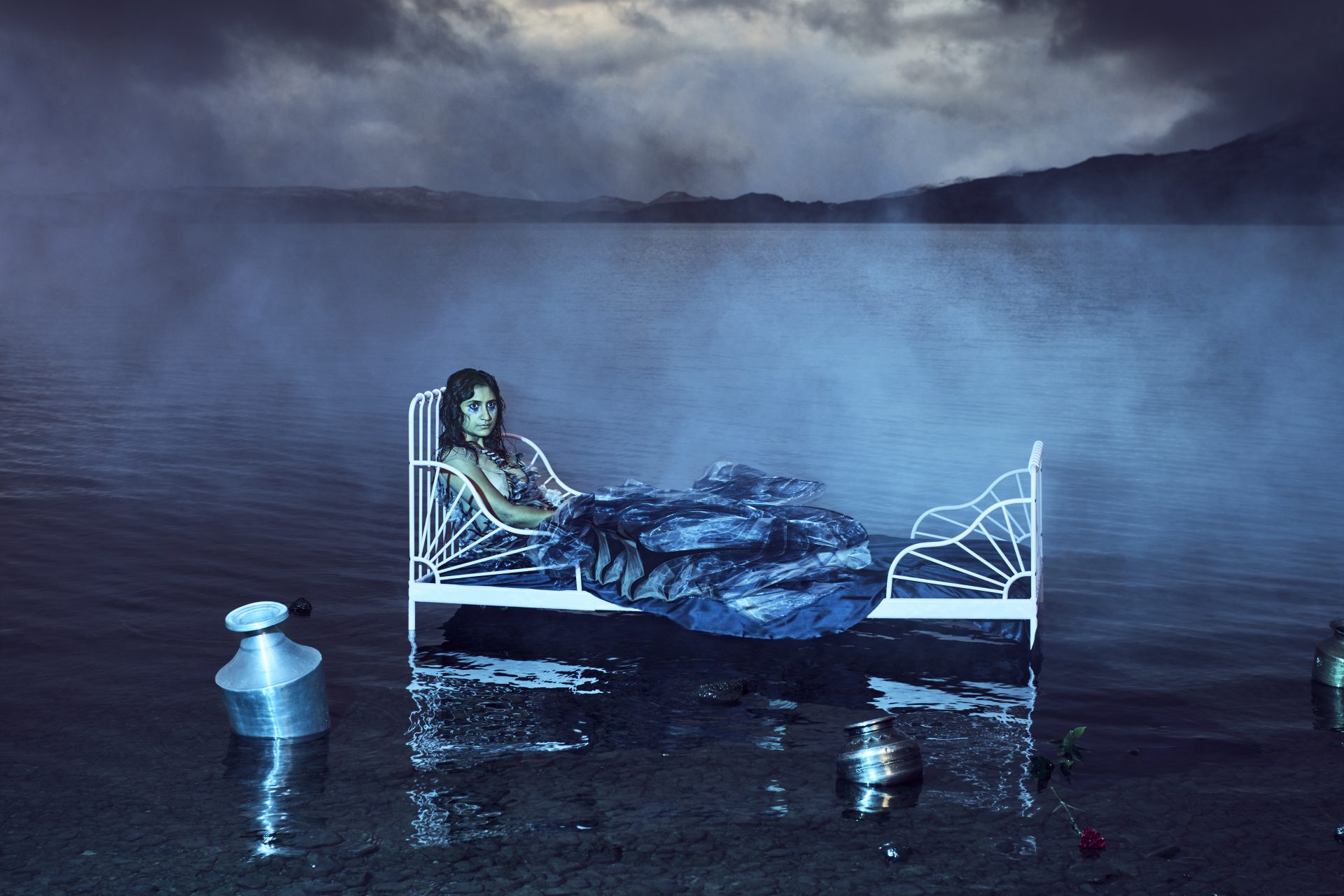
Inspired by a Bangladeshi girl who lost her home to rising water levels, this eerie photo shows a woman sitting atopa bed floating in a vast, misty lake. “When your home is sinking, what means of access to water and toilets does a girl actually have?” Basu asks.
-
Child Marriage and Water

A reminder of the impace of the water crisis on child brides. “Many girls who marry early carry the burden of water collection for their families and forfeit their education,” says Basu.
-
Walking for Water
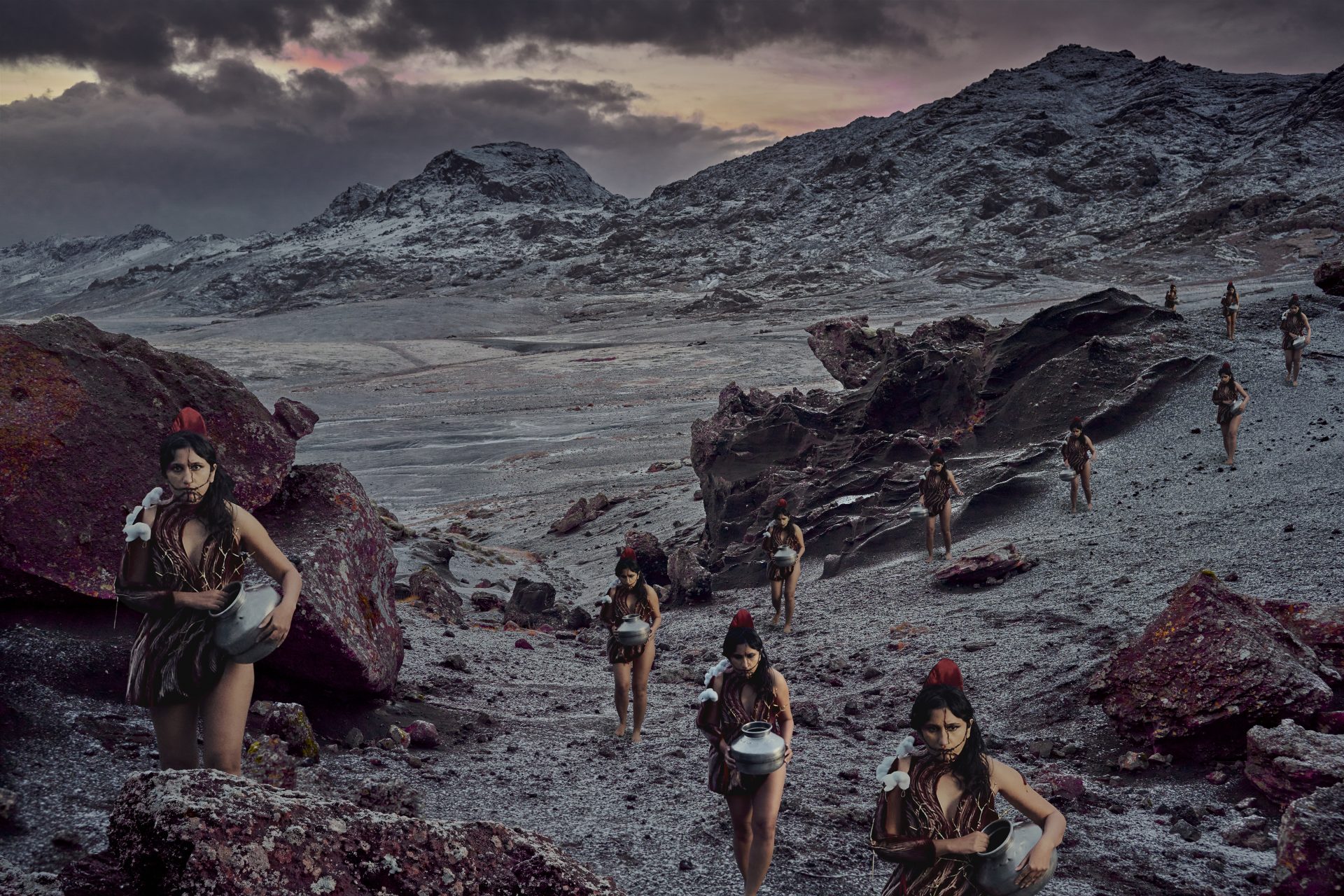
Women and girls in many countries are shouldered with the responsibility of collecting water for their families – many miss out on much of their education, while others leave school entirely.
-
The Burden of Carrying Water
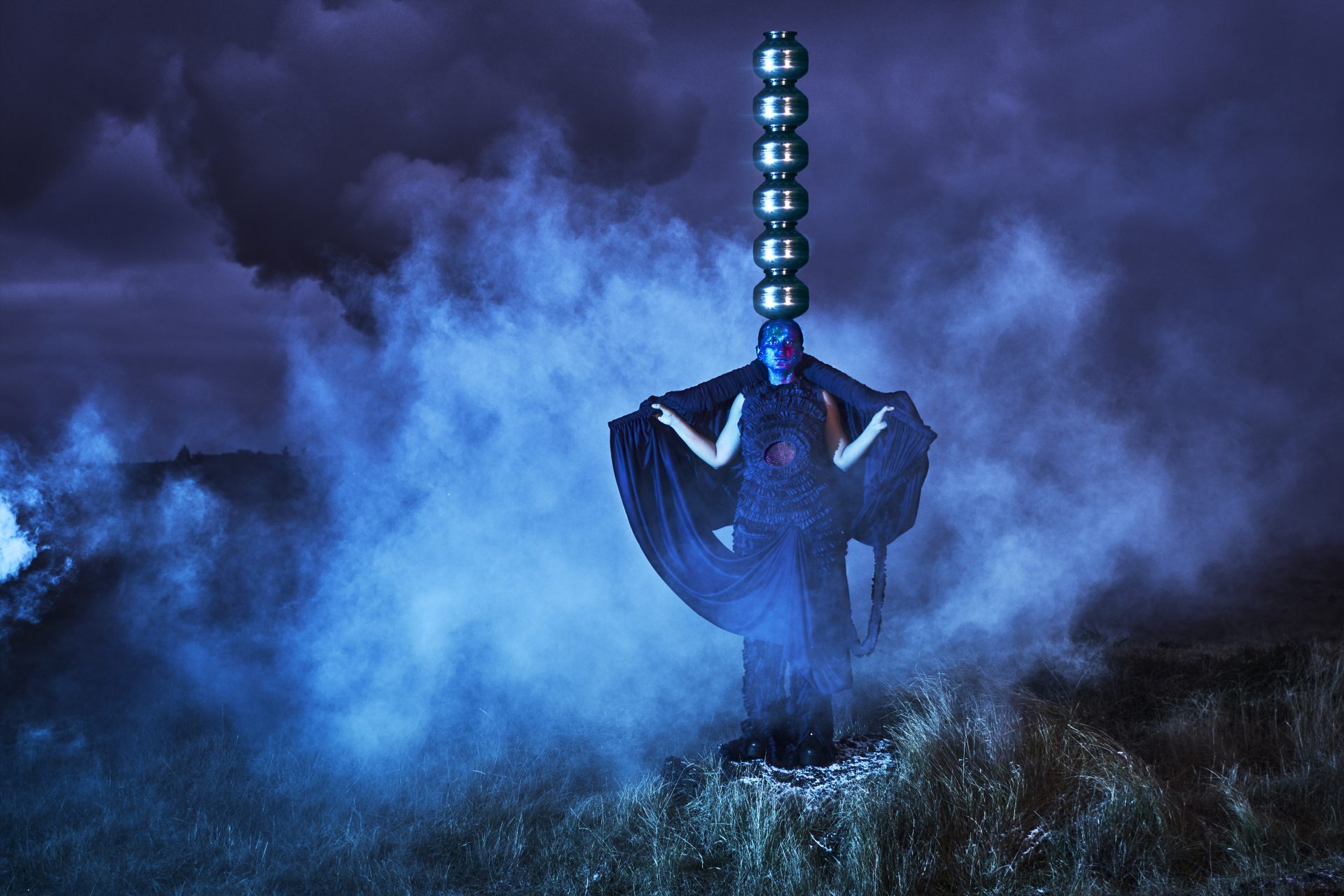
In this powerful photo, Basu evokes the great cosmic mother, a once powerful figure who has been weighed down with the burden of carrying water.
-
Challenging Menstrual Taboos
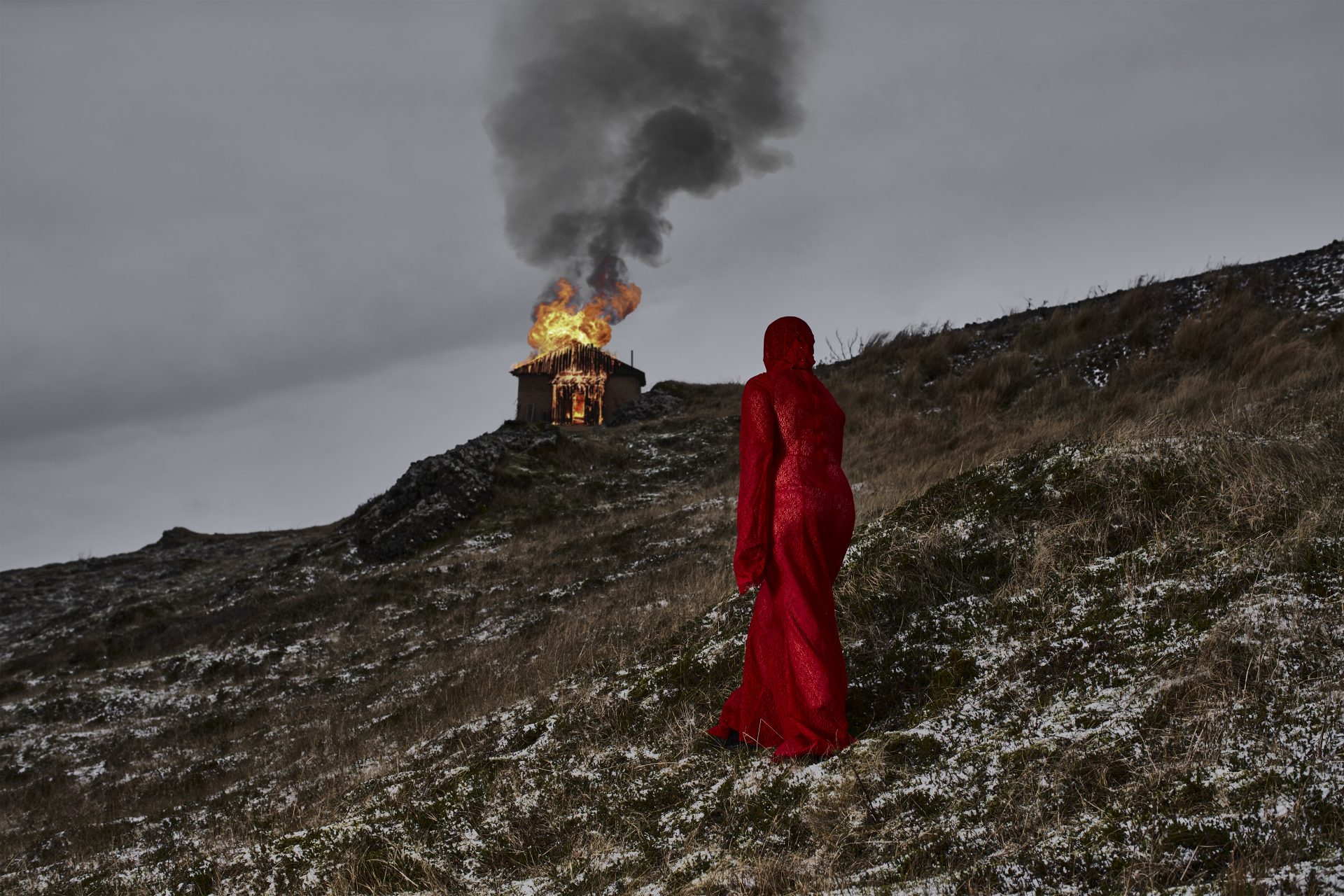
A woman in fiery red approaches a burning hut, representative of a chaupadi, where women in Nepal are sent during their menstrual cycles. Basu says: “Alluding to menstrual exile, the woman is dressed in a red, claustrophobic veil walking towards the hut because she has no other choice.”
-
Education and Menstrual Shame
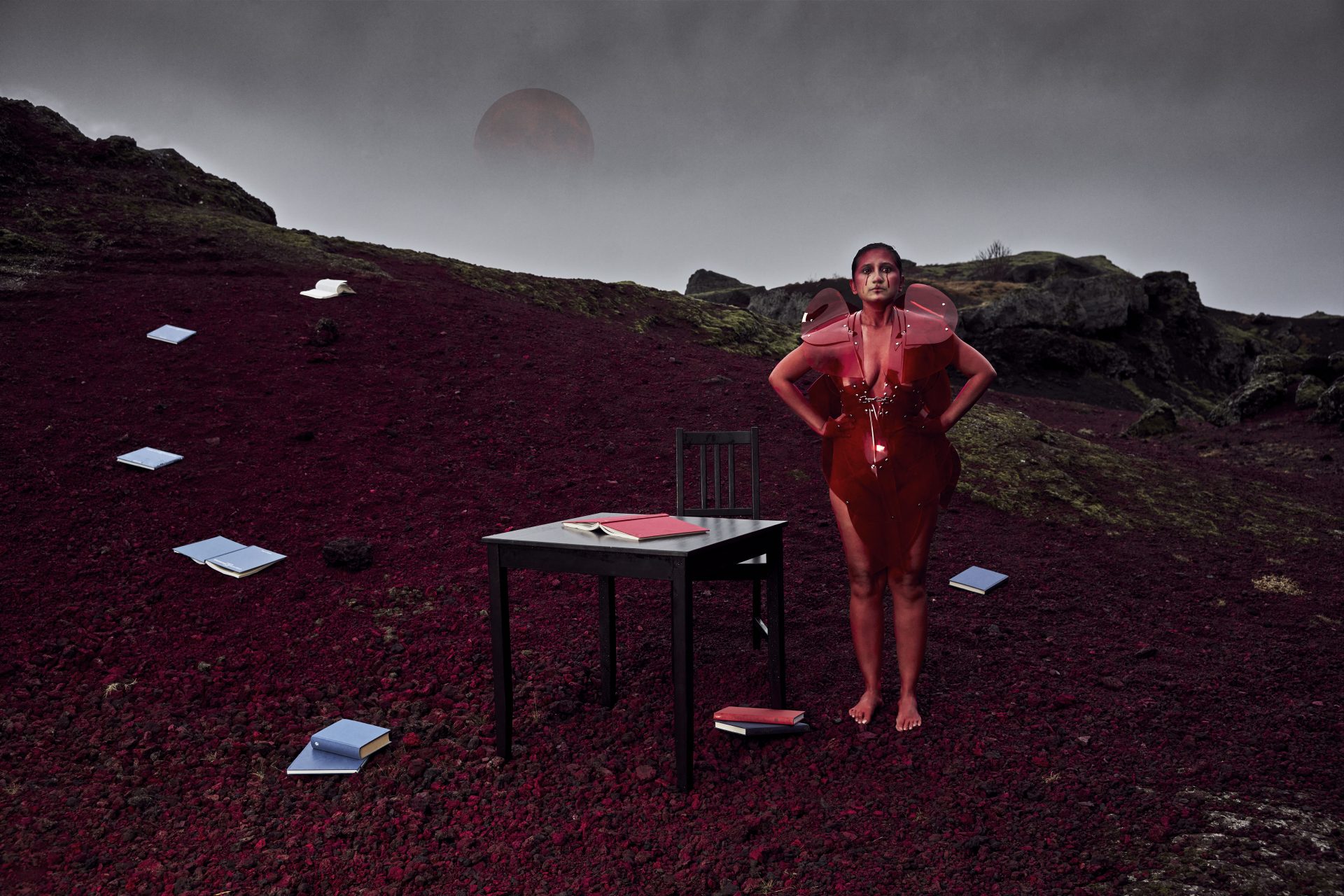
Inspired by a girl who left school due to menstrual taboos, Basu transforms the bleeding womb into a defiant superhero.
-
WALKING INTO DARKNESS

“Without toilets at home, women must often venture into dark forests and across difficult terrains at dawn, dusk and during the night to go to the toilet in the wilderness,” says Basu.
-
Women’s Sacred Relationship to Water

In many indigenous cultures, women are seen as protectors of natural resources. This photo evokes the sacred relationship between women and water.
-
Power and Fire
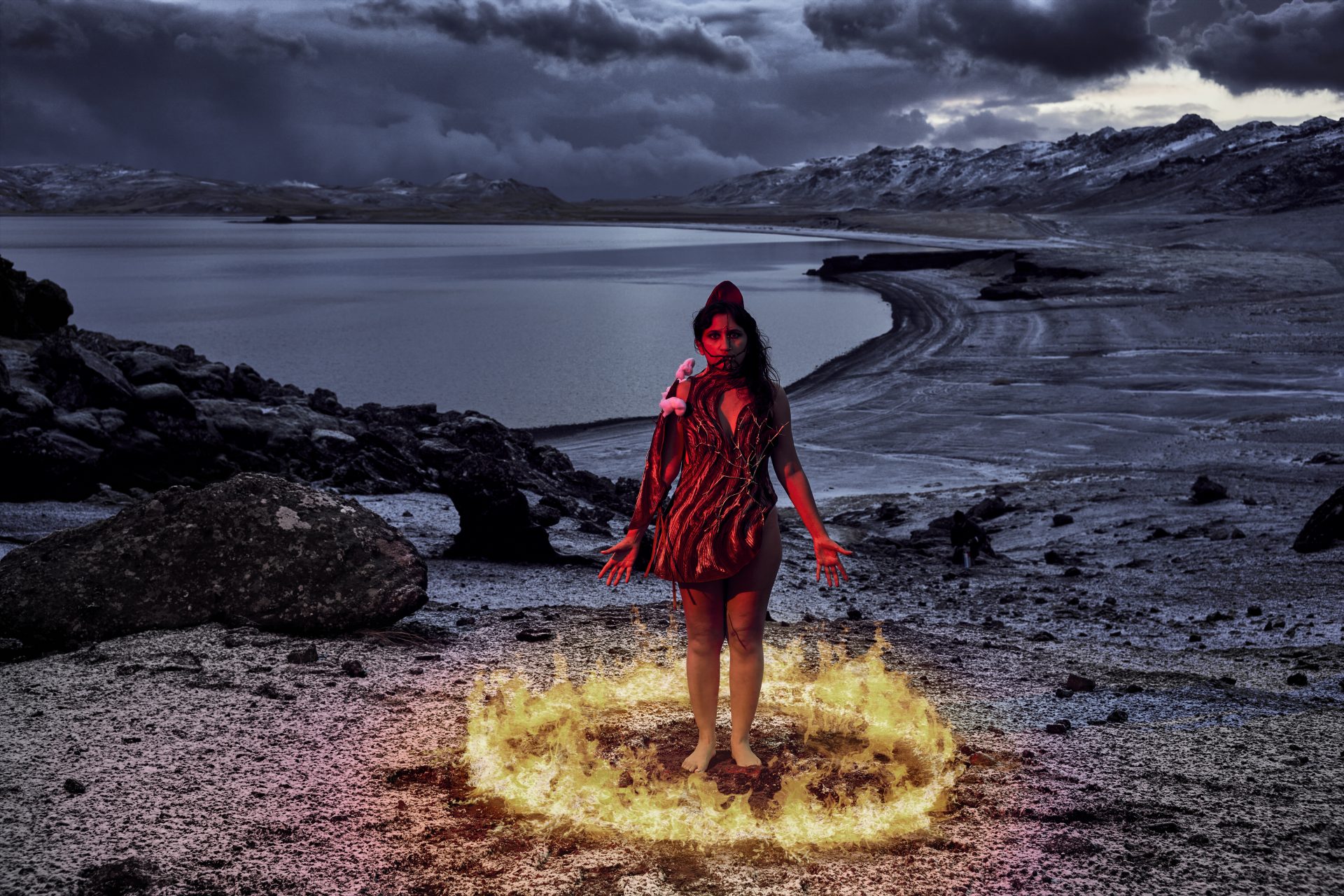
As climate change devastates the natural world, women disproportionately bear the burden. “In the background we see melting snow and bodies of water indicating the imminent danger of the climate crisis that threatens the woman’s future,” Basu says.
-
Red Smoke and Cyclones
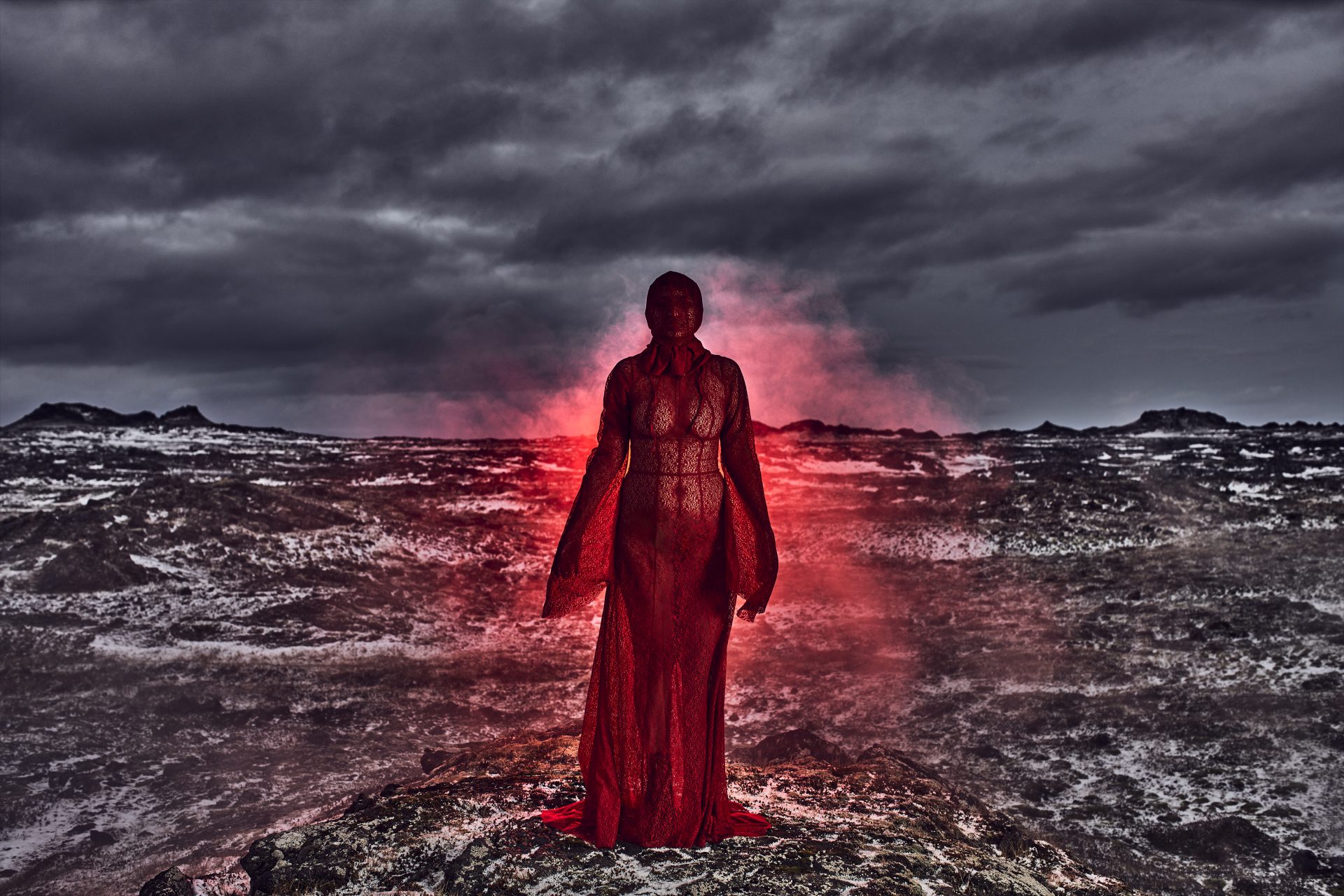
An allusion to the harmful effects of cyclones and disrupted weather patterns and a comment on inequalities that stem from menstrual taboos. Basu says: “She is emanating red smoke as a metaphor for the magical powers of menstruation even though she is dressed in a claustrophobic red veil.”
-
Women’s Bodies and the Land
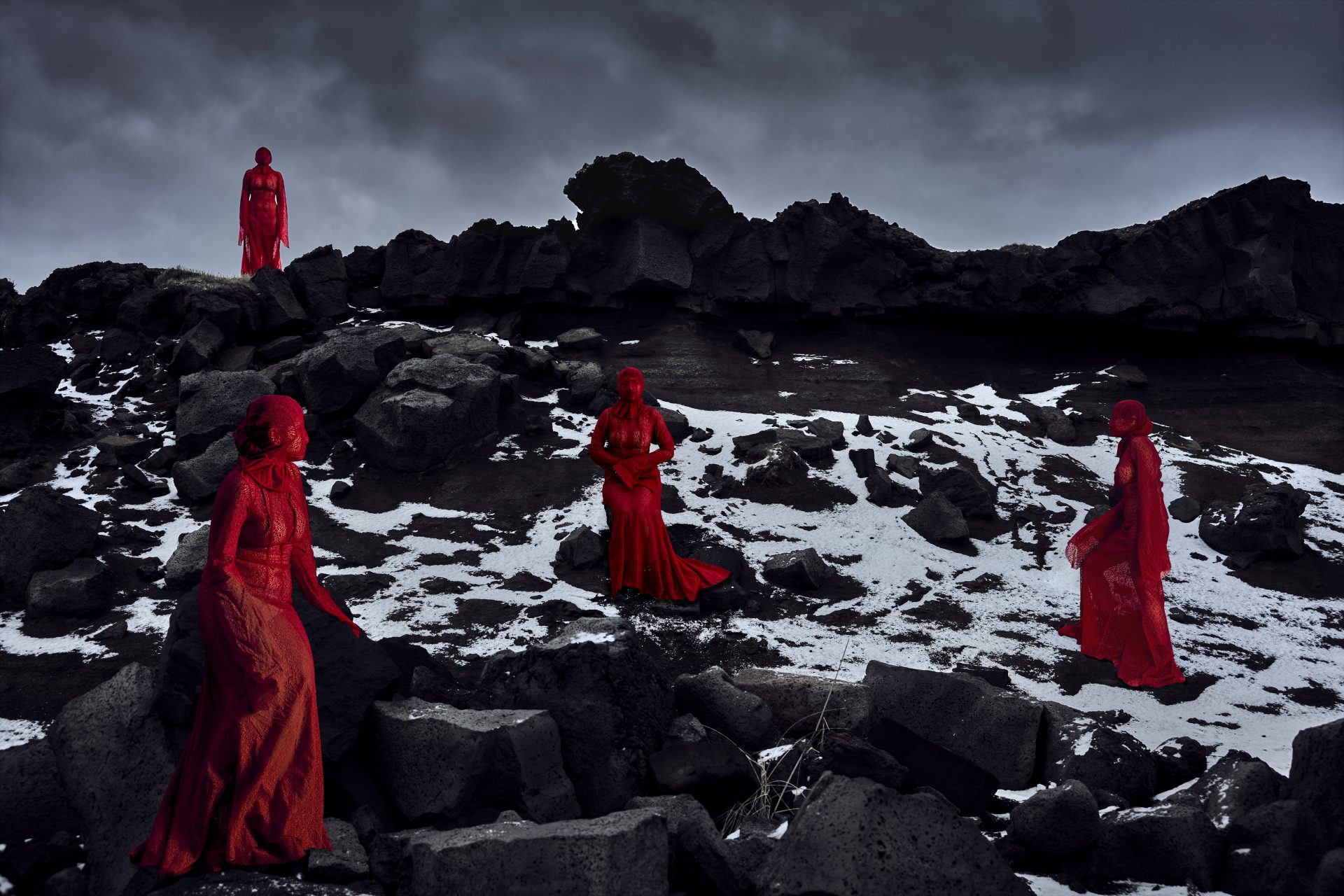
“In indigenous cultures the territoriality of a woman’s body is directly linked to the territory she occupies,” says Basu. “The devastation of the land for me is a metaphor for the war on the body of women and the illusion of her rights. What happens to women, happens to the land and vice versa.”
-
Warrior in Gold
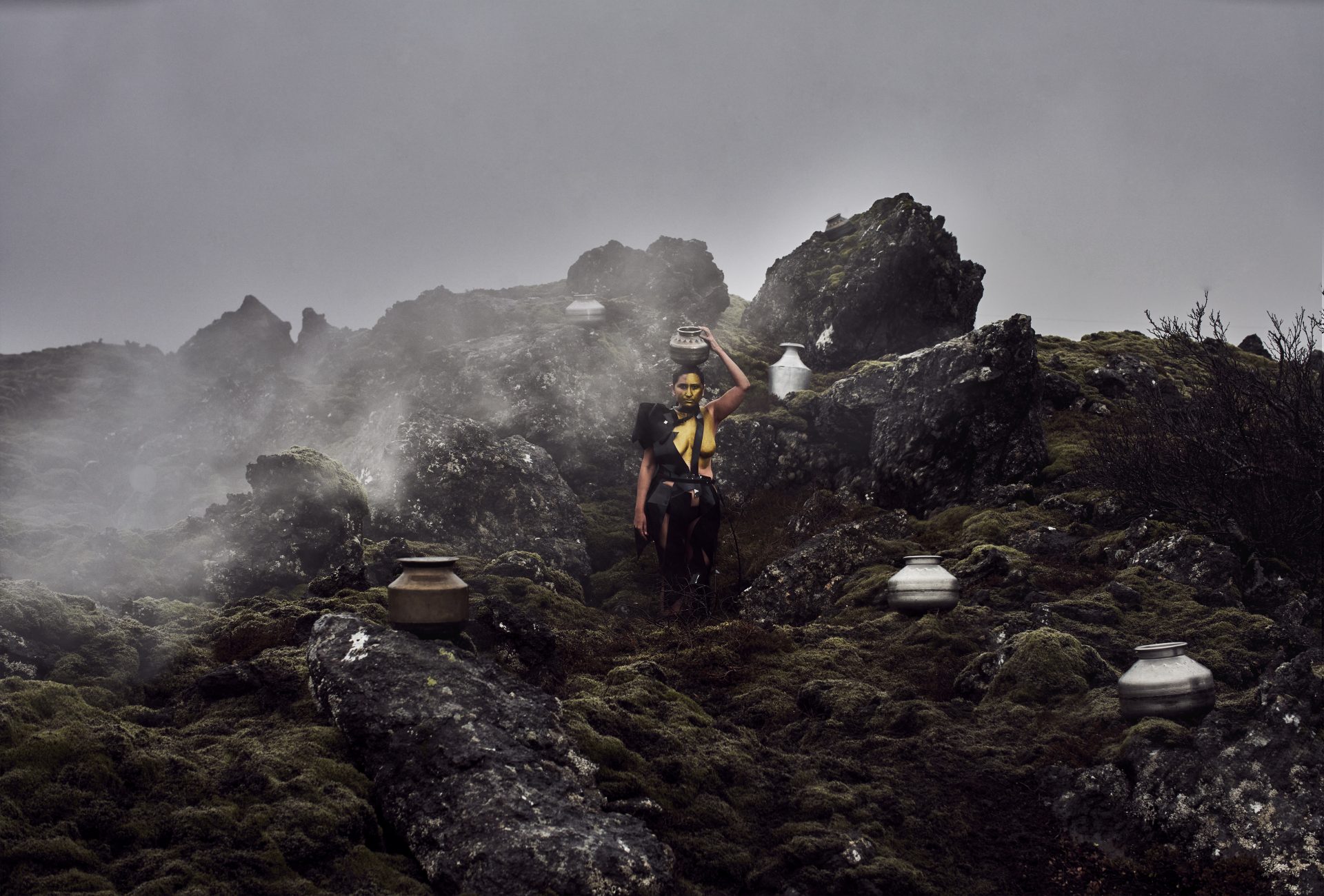
Painted in gold, this woman faces the impact of war on natural resources and, in turn, on her rights and freedoms.
-
Dangerous Water
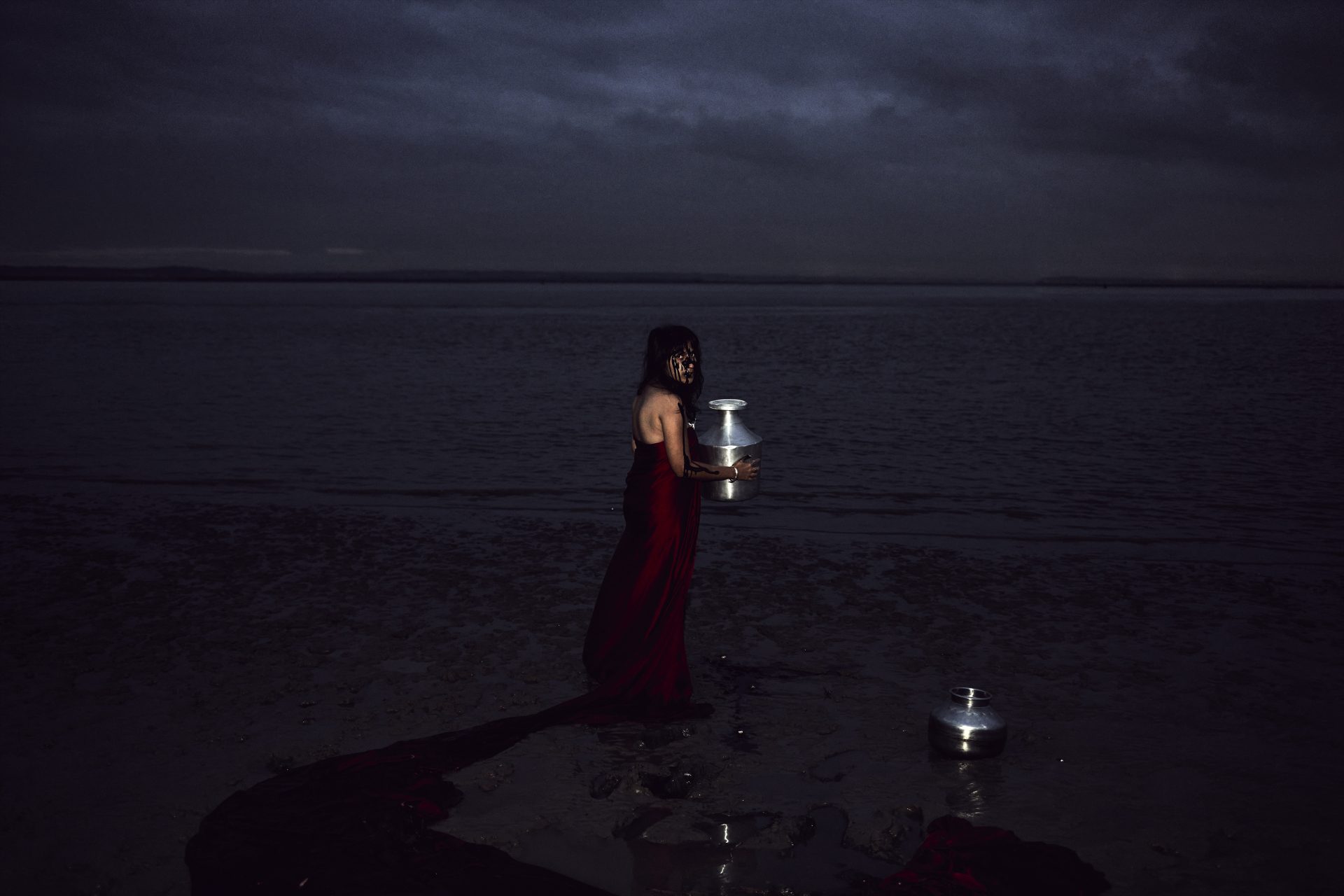
An eerie image of a woman returning home with what Basu suggests is contaminated water. Dirty water is widespread across the globe – more than 800 children die each day from related diseases.
In honour of International Women’s Day on 8 March, Stylist is proud to team up with WaterAid’s ongoing clean water campaign.
Discover more about Poulomi Basu’s remarkable Sisters of the Moon project or donate to WaterAid to help in its mission to support the 771 million people impacted by a lack of access to clean water.
Images: WaterAid/ Poulomi Basu
Source: Read Full Article






